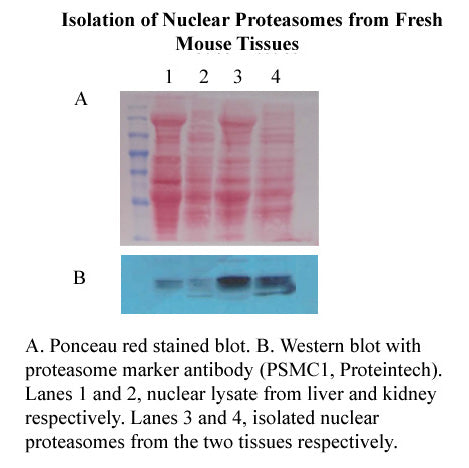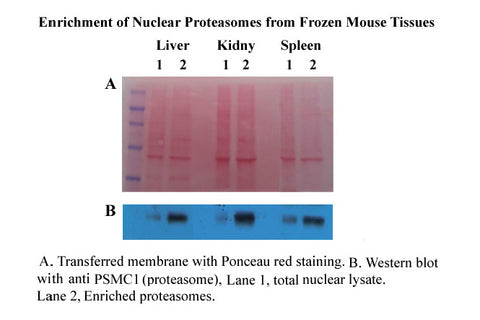Shipping calculated at checkout
Couldn't load pickup availability
Questions about this product? Ask our scientist!
Minute™ Nuclear Proteasome Enrichment Kit (20 preps)
SKU:Cat #: PN-041
Manual & Protocol | MSDS
The proteasome is a protein degradation system that requires metabolic energy and polymerization of ubiquitin that is different from lysosome-based protein degradation. The 26S proteasome is made up of two subcomplexes (a 20S proteasome and one or two19S regulatory particles). The proteasomes have been found mainly localized in the cytosol but also detected in the nucleus. Traditionally, ultracentrifugation and affinity isolation are the most common methods for the isolation of proteasomes. These methods, though relatively effective, are usually time-consuming with low yield. Many affinity-based methods require harsh elution conditions that may affect the activity of isolated proteasomes and limit certain downstream applications. In most cases, the methods can’t distinguish proteasomes derived from cytosol or nucleus. To overcome these shortcomings, we have developed spin-column-based kits for the enrichment of proteasome from nuclei (Cytosolic Proteasome Enrichment Kit is also available under Cat # PT-040). The protocol is simple and rapid with a high yield. The gentle protocol maintains the association of proteasomes with ubiquitin and other proteins and is useful for the studies of proteasome structure and function. The highly enriched proteasomes can also be used as a starting material for affinity purifications.


Kit Components:
|
Items |
Quantity |
|
Buffer A |
30 ml |
|
Buffer B |
8 ml |
|
Filter Cartridges with collection tube |
40 units |
|
Pestle for 1.5 ml tube |
2 units |
|
Protein extraction powder |
2.0 grams |
References (1)
1. Zhang, C. Y., Zhang, R., Zhang, L., Wang, Z. M., Sun, H. Z., Cui, Z. G., & Zheng, H. C. (2023). Regenerating gene 4 promotes chemoresistance of colorectal cancer by affecting lipid droplet synthesis and assembly. World Journal of Gastroenterology, 29(35), 5104-5124.

